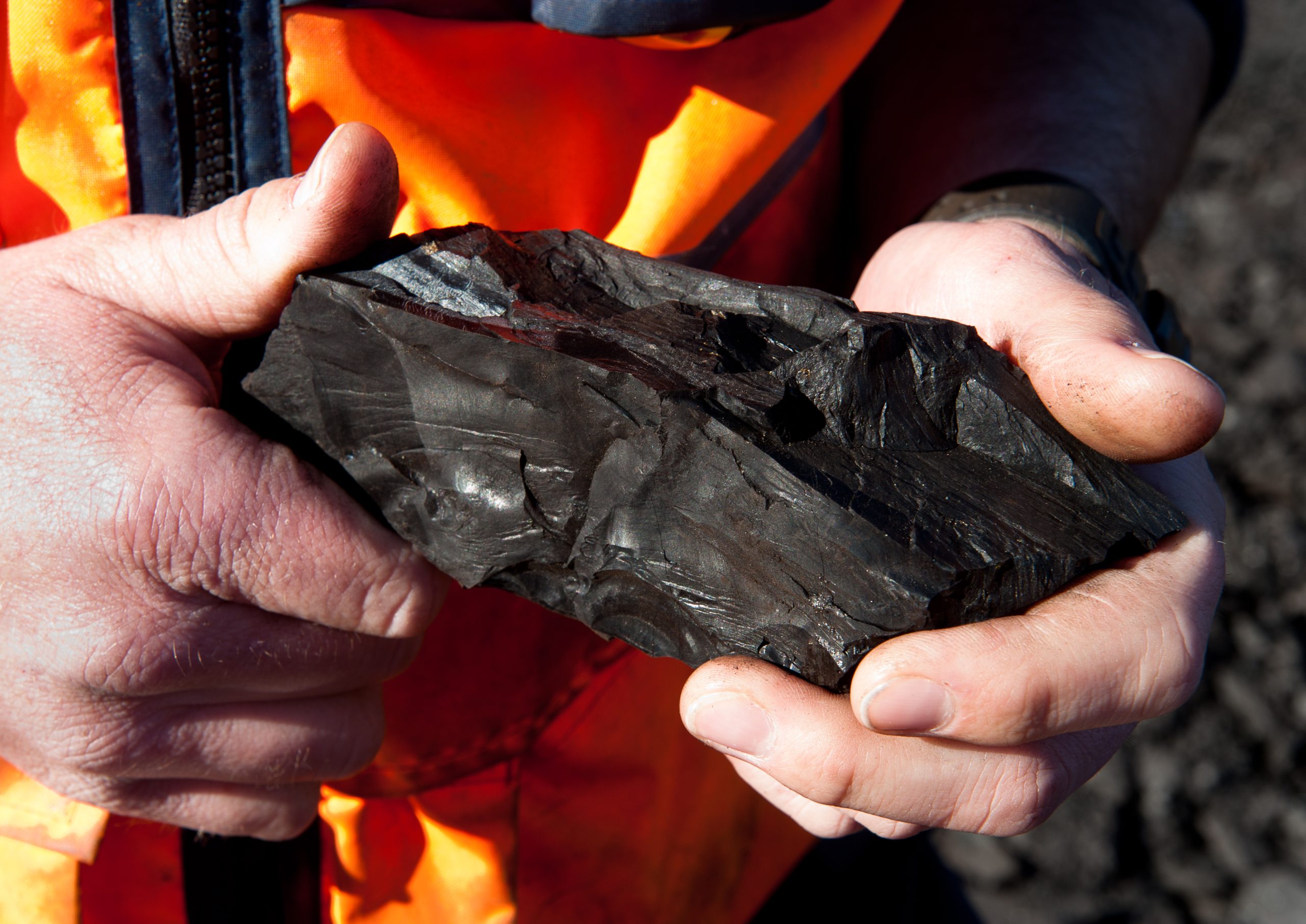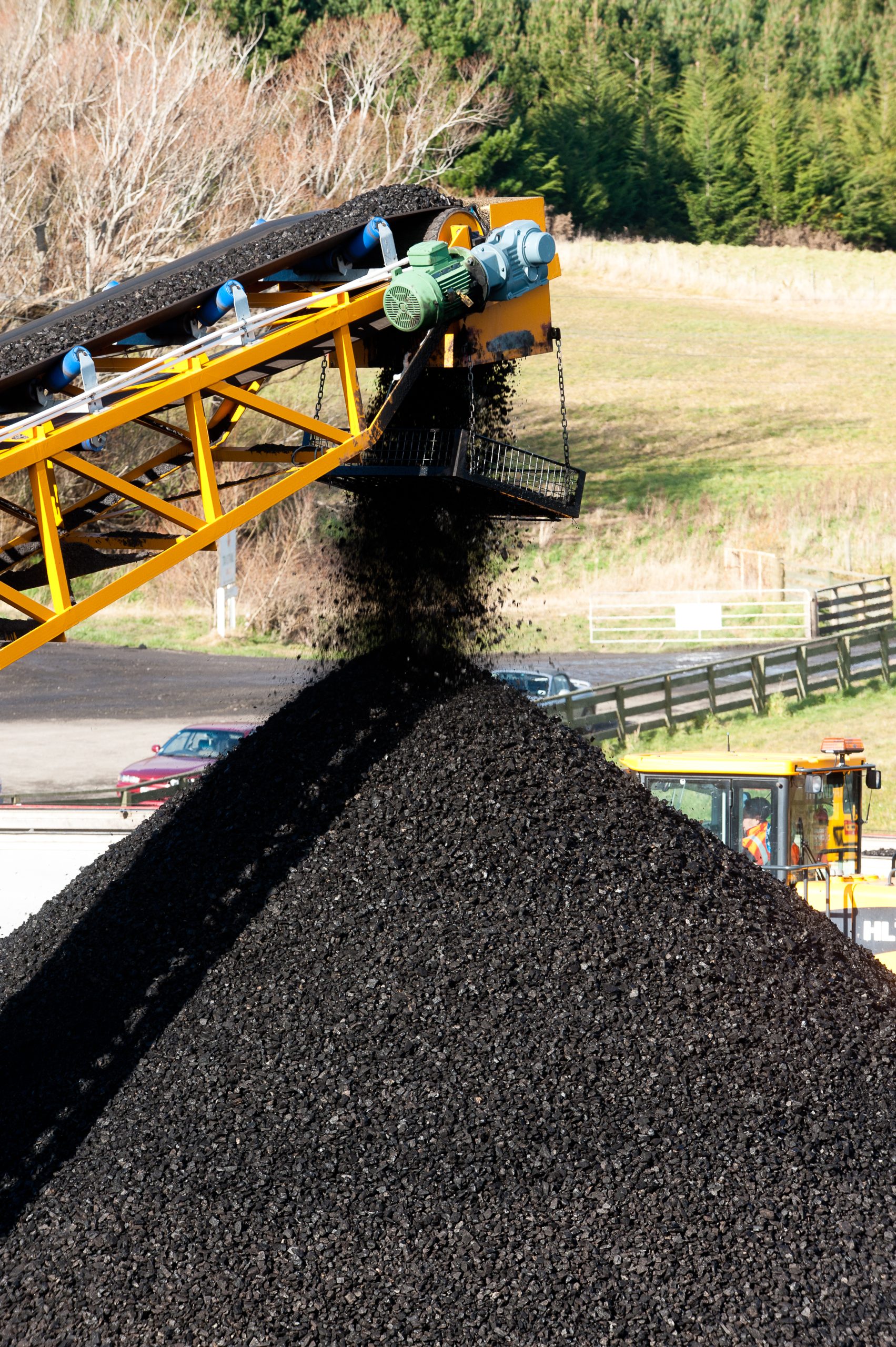Coal
The major New Zealand coalfields are located in the Waikato, the West Coast, Otago and Southland. An estimated 2.9 million tonnes of coal is mined for domestic use and for export, mainly from open cast mines.
Coal has played a key role in the development of modern New Zealand. At present there is no practical alternative to coal as a source of affordable, accessible, readily available industrial process heat for fuelling our industrial processes.
Alternative technologies are increasingly available, e.g. partial conversion to wood waste (biomass) and electrification, but for the immediate future major New Zealand food producers, including dairy, rely on coal as energy for their manufacturing facilities.
During Covid-19 coal mining was considered an essential service because of its use in food production and heating hospitals.
Coal’s annual economic contribution to the country runs into many billions of dollars, thinking of steel, cement and lime, food , as examples of goods produced using coal. If we didn’t have extensive domestic supplies, coal would be imported, and, at times it is, currently in significant quantities, 1.8 million tonnes in 2021 which is more than half of what was consumed locally.
Coal mining plays a substantial role in underpinning several regional economies, particularly on the West Coast of the South Island.
Today the coal industry is highly regulated, including in relation to CO2 emissions.
The coal industry has an interest in New Zealand’s energy future, and the types of pathway New Zealand could take in varying its energy mix. It is inevitable that the role of coal in the New Zealand economy will change over time.
New Zealand coal qualities
Coal is highly variable in quality and also from one mining operation to another. For this reason, blending is an important part of the value chain for coal.
Some New Zealand coal has highly sought-after properties, such as low-sulphur and ash content, and superior “swelling” properties for use in blast furnaces. This coal is exported to steel makers in Japan, India, Korea, and Australia.
Types of coal depend on various factors including the plant matter it was formed from. As coal becomes compressed underground over time it gradually changes from peat, to lignite or brown coal, then to sub-bituminous and bituminous coal and, in some parts of the world, into the hard and shiny anthracite.
New Zealand’s main coals are:
- Bituminous, a high-grade premium coal exported for processes like steel making
- Sub-bituminous, lower-grade coal, used in New Zealand, mainly as thermal energy for industrial and commercial purposes, and at the New Zealand Steel Glenbrook steel mill.
- Lignite, very low grade of coal, used for industrial heat, e.g. dairy processing.

Coal use in New Zealand
In New Zealand, coal is used in:
- Electricity generation
- Steel making, and cement and lime manufacture
- Food processing - including milk powder, and other dairy products, meat, vegetable canning, salt, gelatine and dried herbs
- Heating commercial horticultural hothouses during cooler months
- Other industrial process including processing of timber, wool and leather
- Heating commercial and public facilities including schools, universities, hospitals, museums, laundries, hotels, offices, and swimming pools
As a back up to renewable sources, coal plays a vital role in providing energy security. It is important not just in dry years and/or when the wind isn’t blowing and the sun not shining, but also in times of gas outages. Coal’s role in electricity generation is limited but it makes a crucial contribution in this backup role. If coal were removed from the electricity system, New Zealand would face blackouts.
Coal is an essential input into the manufacture of steel, used as a mineral input as well as a source of heat. There is currently no commercially viable alternative to make new steel at scale without coal. Coal is also a crucial input for cement manufacture, through the high temperatures required.







